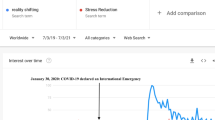Abstract
There is a practical five-step method of ethics dialog developed by John Woolman, an 18th c. businessman and ethical activist, that was used by Robert K. Greenleaf, a 20th c. A.T.&T. Corporate Vice-President, that includes: (a) friendly, emotive affect; (b) discussion of mutual commonalities; (c) discussion of issue entanglements; (d) discussion of potential experimental solutions; and, (e) trial and feedback discussion. This method of dialog appears to proceed with a type of consciousness considered by John Woolman and Bernard Lonergan as one where the “I” is conscious that “I” and “Others” are part of a more foundational, larger and prior “We.” This type of dialog is different than Socratic dialog. The corresponding type of consciousness is different than the more derivative, e.g., two allies being united in their response to a common goal. It is also different than Buber's “I and Thou” appreciative consciounsess of the interestingness, value, diversity, and uniqueness of others. Woolman dialog as seen in four cases appears to be a concrete method that has some value both as an end in itself and as instrumental means that can: be issue effective, help build ethical organization/community culture, and help facilitate peaceful, evolutionary change and development. Limitations of the method are also considered. The method may also be a several hundred year anticipation of experiment based pragmatist philosophy that is anthropologically sensitive to cultural entanglements.
No man is an Iland, intire of it selfe, ... Each is a peece of the Continent, a part of the maine....
John Donne (17th c.)
Similar content being viewed by others
References
Buber, M.: 1909, 1985,Estatic Confessions: The Heart of Mysticism (Harper and Row, N.Y.).
Buber, M.: 1937,I And Thou (T.&T. Clark, Edinburgh).
Buber, M.: 1947,Between Man and Man (Macmillan, London).
Eliot, T. S.: 1944,Four Quartets (Faber and Faber, London).
Emden, P. H.: 1939,Quakers in Commerce (Sampson Low, Marston & Co., London).
Friedman, M. S.: 1955,Martin Buber: The Life of Dialogue (Harper and Row, New York).
Gadamer, H.-G.: 1960, 1975,Truth and Method (Crossroad, New York).
Gadamer, H.-G.: 1970, ‘Sprache und verstehen’,Zeitwende 6, 364–377, Translator, F. Lawrence.
Greenleaf, R.: 1977,Servant Leadership (Paulist Press, New York).
Grubb, I.: 1929,Quakerism and Industry Before 1800 (William & Norgate Ltd., London).
James, W.: 1902,Varieties of Religious Experience (Longmans, Green & Co. N.Y.).
James, S. V.: 1963,A People Among Peoples: Quaker Benevolence in Eighteenth-Century America (Harvard University Press, Cambridge).
Jones, R. M.: 1923,Studies in Mystical Religion (Macmillan, London).
Jones, R. M.: 1924The Life and Message of George Fox (Macmillan, N.Y.).
Jones, R. M.: 1930Some Exponents of Mystical Religion (Abingdon Press, N.Y.).
Jones, R. M.: 1947, ‘Our Day in the German Gestapo’,Friends Intelligencer, August 2.
Jones, R. M.: 1963, ‘Quakerism: A Spiritual Movement’, Mary Hoxie Jones (ed.). Philadelphia Yearly Meeting Of Friends.
Lawrence, F.: 1981, ‘Translator's Introduction. In Reason in the Age of Science’, by H.-G. Gadamer (MIT Press, Cambridge), pp. ix-xxxiii.
Lawrence, F.: 1984 ‘Language as Horizon?’, in Fred Lawrence (1984) Ed.,The Beginning and the Beyond (The Scholars Press, Chico, CA).
Lonergan, B.: 1957,Insight: A Study of Human Understanding (Longmans Green & Co., London).
Lonergan, B.: 1972,Method in Theology (Herder and Herder, N.Y.).
McCann, T.: 1976,An American Company (Crown, N.Y.).
McCann, T.: 1984, Lecture and discussion at Boston College.
Pickett, C. E.: 1953,For More Than Bread: An Autobiographical Account of Twenty-Two Years' Work with the American Friends Service Committee (Little Brown, Boston)
Pizzetti, I. and Cocker, H.: 1975,Flowers: Volumes One and Two (Harry N. Abrams, Inc., New York).
Price, J. R.: 1985a, ‘Lonergan and the Foundation of a Contemporary Mystical Theology’,Lonergan Workshop V, pp. 163–195.
Price, J. R.: 1985b, ‘The Objectivity of Mystical Truth Claims’,The Thomist 49, pp. 81–98.
Sheeran, M. J.: 1983,Beyond Majority Rule: Voteless Decisions in the Religious Society of Friends (Philadelphia Yearly Meeting, Philadelphia).
Socrates (4th c. B.C.): 1903,The Four Socratic Dialogues of Plato, trans. B. Jowett (Clarendon Press, Oxford).
Tolles, F. B.: 1948,Meeting House and Counting House: The Quaker, Merchants of Colonial Philadelphia 1682–1763 (Norton, N.Y.).
United States Pharmaceutical Convention: 1981,The Physicians' and Pharmacists' Guide To Your Medicines (Ballantine Books, New York).
Vining, E. G.: 1958,Friend of Life: The Biography of Rufus M. Jones (Lippincott, Philadelphia).
Walker, J. F.: 1967,The Quaker Meeting For Business (Pendle Hill Bulletin 190, Wallingford, PA).
Woolman, J.: 1774, 1818,The Works of John Woolman in Two Parts. 5th. ed. (Benjamin & Thomas Kite, Philadelphia).
Author information
Authors and Affiliations
Additional information
Richard P. Nielsen is a professor in the Department of Organizational Studies, School of Management, Boston College. Related articles of his include: ‘Dialogic Leadership As Organizational Ethics Action (Praxis) Method’, Journal of Business Ethics(October 1990); ‘Negotiating As An Ethics Action (Praxis) Strategy’, Journal of Business Ethics(May 1989); ‘Changing Unethical Organizational Behavior’, Academy of Management Executive(May 1989); ‘Arendt's Action Philosophy and the Manager as Eichmann, Richard III, Faust, or Institution Citizen’, California Management Review(Spring 1984); and ‘Cooperative Strategy’, Strategic Management Journal(September–October 1988).
Rights and permissions
About this article
Cite this article
Nielsen, R.P. ‘I am we’ consciousness and dialog as organizational ethics method. J Bus Ethics 10, 649–663 (1991). https://doi.org/10.1007/BF00705872
Issue Date:
DOI: https://doi.org/10.1007/BF00705872




